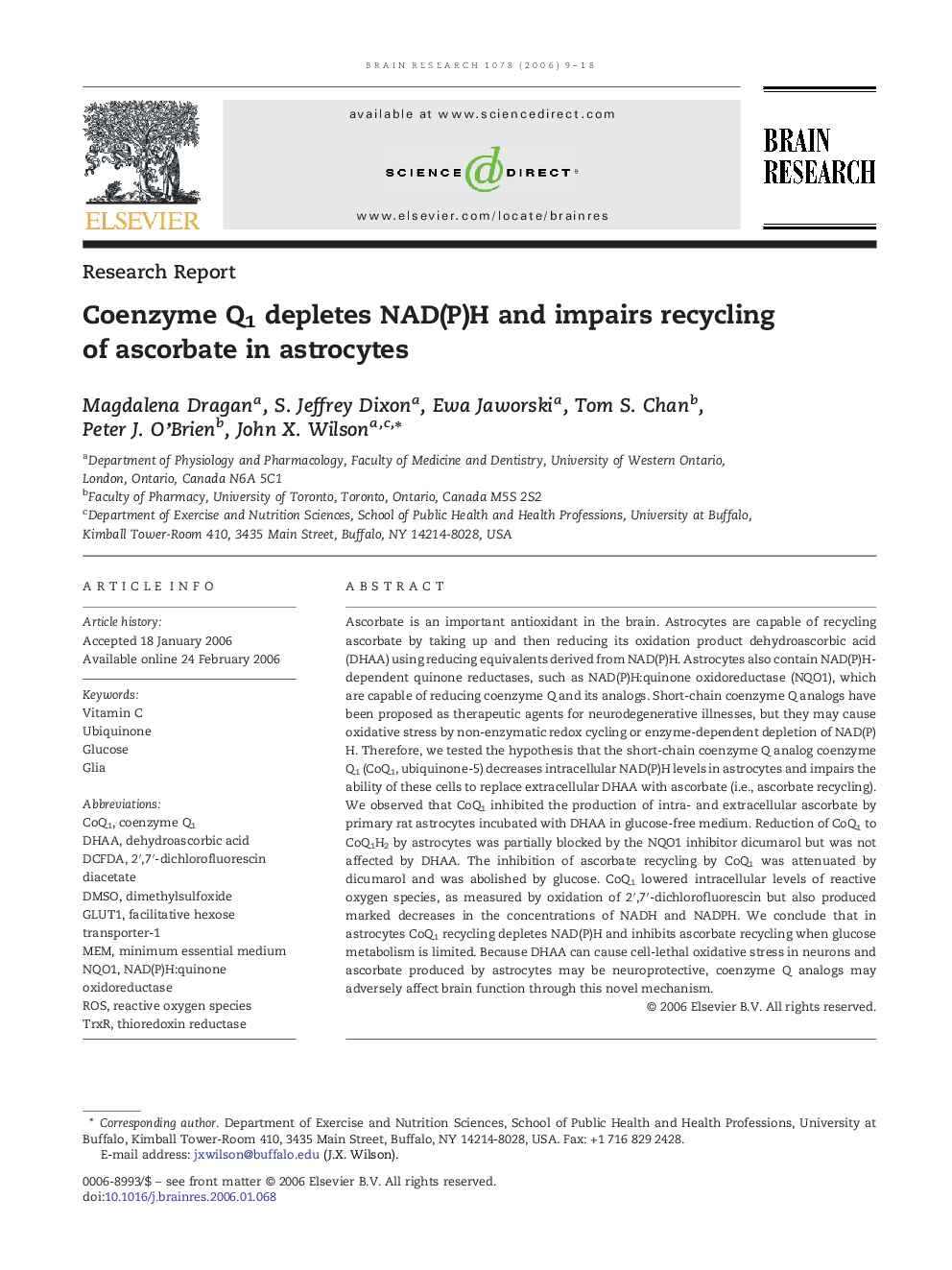| کد مقاله | کد نشریه | سال انتشار | مقاله انگلیسی | نسخه تمام متن |
|---|---|---|---|---|
| 4333253 | 1292927 | 2006 | 10 صفحه PDF | دانلود رایگان |

Ascorbate is an important antioxidant in the brain. Astrocytes are capable of recycling ascorbate by taking up and then reducing its oxidation product dehydroascorbic acid (DHAA) using reducing equivalents derived from NAD(P)H. Astrocytes also contain NAD(P)H-dependent quinone reductases, such as NAD(P)H:quinone oxidoreductase (NQO1), which are capable of reducing coenzyme Q and its analogs. Short-chain coenzyme Q analogs have been proposed as therapeutic agents for neurodegenerative illnesses, but they may cause oxidative stress by non-enzymatic redox cycling or enzyme-dependent depletion of NAD(P)H. Therefore, we tested the hypothesis that the short-chain coenzyme Q analog coenzyme Q1 (CoQ1, ubiquinone-5) decreases intracellular NAD(P)H levels in astrocytes and impairs the ability of these cells to replace extracellular DHAA with ascorbate (i.e., ascorbate recycling). We observed that CoQ1 inhibited the production of intra- and extracellular ascorbate by primary rat astrocytes incubated with DHAA in glucose-free medium. Reduction of CoQ1 to CoQ1H2 by astrocytes was partially blocked by the NQO1 inhibitor dicumarol but was not affected by DHAA. The inhibition of ascorbate recycling by CoQ1 was attenuated by dicumarol and was abolished by glucose. CoQ1 lowered intracellular levels of reactive oxygen species, as measured by oxidation of 2′,7′-dichlorofluorescin but also produced marked decreases in the concentrations of NADH and NADPH. We conclude that in astrocytes CoQ1 recycling depletes NAD(P)H and inhibits ascorbate recycling when glucose metabolism is limited. Because DHAA can cause cell-lethal oxidative stress in neurons and ascorbate produced by astrocytes may be neuroprotective, coenzyme Q analogs may adversely affect brain function through this novel mechanism.
Journal: Brain Research - Volume 1078, Issue 1, 17 March 2006, Pages 9–18